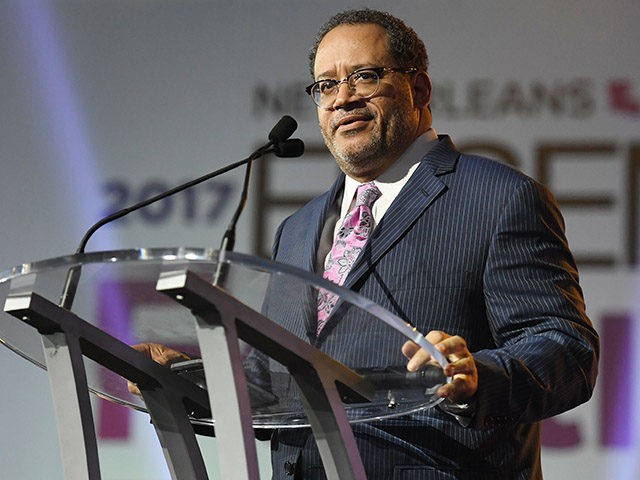Professor Michael Eric Dyson described racial demographics as a “significant feature” which should be taken into consideration as part of a “holistic” approach to college and university admissions on CNN Monday.
The conversation came in the context of actions by President Donald Trump, who will undo Obama-era guidelines on affirmative action for the Department of Education and Department of Justice.
Describing “black and brown people” as “historically denied [and] maligned,” Dyson called for “African-American and Latino populations” to receive “compensation” via the consideration of their race and ethnicity as meritorious “extra academic [and] extracurricular” achievements.
Dyson also said “white students… need to have the benefit” of “diversity” via education with “black students and brown students.”
Dyson criticized the Trump administration for “reject[ing] the principle of diversity as the predicate for expanding the minds of American students so that we understand race, class, culture, gender, and the like.”
Partial transcript below, via CNN.
DYSON: Look, already it was illegal to have a quota. That is to say we’re going to make up for the numbers of black and brown people who have been historically denied or compensation to make up for the historically maligned African-American and Latino populations.
But what it does suggest is that there should be a consideration of race and a holistic understanding of how college administration — college admissions are administered.
So in that case, race is a figure — a significant feature among many others when considering a person so that diversity enhances not only African-American and Latino people who have been denied access but those white students who need to have the benefit of those black students and brown students.
For instance, think about the fact we would have far fewer people inclined to call the police on strange-acting black or brown people if they actually had a college course with them and interacted with them.
But secondly, what’s interesting here — we’re not talking about the masses of college and universities here. We’re speaking about the intense competition for the elite — the top echelon. So that 15 percent of college-aged students are black and yet there are only six percent at these elite institutions. Latinos, 22 percent of the population and only 13 percent at these elite colleges.
…
And what the Trump administration has done here is rejected the principle of diversity as the predicate for expanding the minds of American students so that we understand race, class, culture, gender, and the like.
…
They usually quote Martin Luther King, Jr. who said judge me by the content of the character, not the color of my skin. But, Martin Luther King, Jr., in 1963 in his book “Why We Can’t Wait,” said that if the nation has done something special against the Negro (as we were then called) for 240 years, the nation must do now something special for the Negro.
…
So merit is dependent upon who counts what is meritorious.
Think about this. When people used to get access to schools they were like you’re a violin player from Vermont and we have a deficit of people from there. There were always extra academic, extracurricular considerations to play in terms of the doling out who got into these schools and that. So, race was one among many others. If race has been used as a demerit, it has to be constituted as a merit.
Dyson is a professor of sociology at Georgetown University’s department of African American studies. He has instructed courses titled “Hip Hop Culture: Origins/Meaning/Consequences,” “Sociology/Hip-Hop: Urban Theodicy Jay-Z,” and “Barack Obama and Race.”
Follow Robert Kraychik on Twitter.

COMMENTS
Please let us know if you're having issues with commenting.